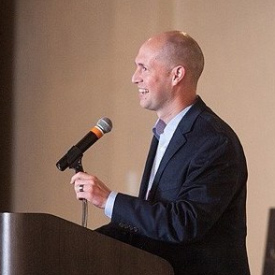The Power of Neighborliness
“It may be very difficult for modern people to imagine a world in which men are not generally admired for covetousness and crushing their neighbors;
but I assure them that such strange patches of an earthly paradise do really remain on earth.”
– G.K. Chesterton
My students and I spend many hours wrestling with “big” questions; the types of questions sure to face anyone who reads great books or delves into the tales of times gone by. We address large-scale issues that affect whole nations, civilizations, and cultures, as well as those that involve the individual; questions of war and government, human nature and the image of God.
Upon diving into big questions or problems, the general assumption is that we should be looking for big answers and solutions. For example, when my students study the Bill of Rights and find, to their shock, that much of it has been either actively trampled or simply ignored, they invariably ask, “But, what can we do about it?” Visions of protests dance in their heads.
Protests and the like have their place, but the answer to our big questions is what it has always been:
“’You shall love the Lord your God with all your heart, with all your soul, and with all your mind.’ This is the first and greatest commandment. And the second is like it: ‘You shall love your neighbor as yourself.’ On these two commandments hang all the Law and the Prophets” (Matthew 22:37-40).
“Therefore, whatever you want men to do to you, do also to them, for this is the Law and the Prophets” (Matthew 7:12).
Modern man is too impatient for such solutions. Once upon a time, grand cathedrals were begun by men whose eyes would never behold their completion. Today we put up metal buildings in about a month. We want overnight answers to centuries-old problems. We want to plant today and harvest tomorrow. Our big questions, we think, must have big answers that can fix it now. But no such answers exist.
The idea that modern, worldwide problems could be answered by “love your neighbor” seems far too simple, but we must remember that “simple” and “easy” are not the same. Picking up an SUV is simple (Only two steps: 1. Grab bumper. 2. Lift.), but it is not easy. Loving your neighbor is simple (one command), but who would call it easy? In fact, I suspect that we would prefer a big solution because this one is just too difficult.
Is this too naïve? Aren’t our problems too much to reduce to a child’s Sunday School lesson? Yes, but perhaps the problem is that we have treated Christ’s commands as nothing more than a child’s Sunday School lesson, to be forgotten as adults. The idea of “neighborliness,” meanwhile, has been driven to the realm of the quaint and old-fashioned. In reality, it is the foundation of Christian morality and civilization.
Loving your neighbor seems too “weak” to modern man, but this is because moderns prefer the appearance of power (revolutions, bombs, action!) to actual power (the life-changing effect of loving those who do not deserve it).
Loving your neighbor will not solve the problems of today, today. But it will solve them.
To be continued next week…

Brian Phillips
Dr. Brian Phillips serves as a pastor in Concord, NC, where he lives with his wife and their four children.










